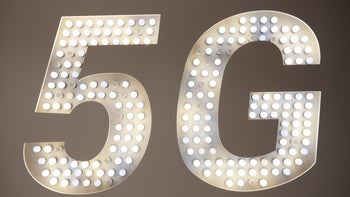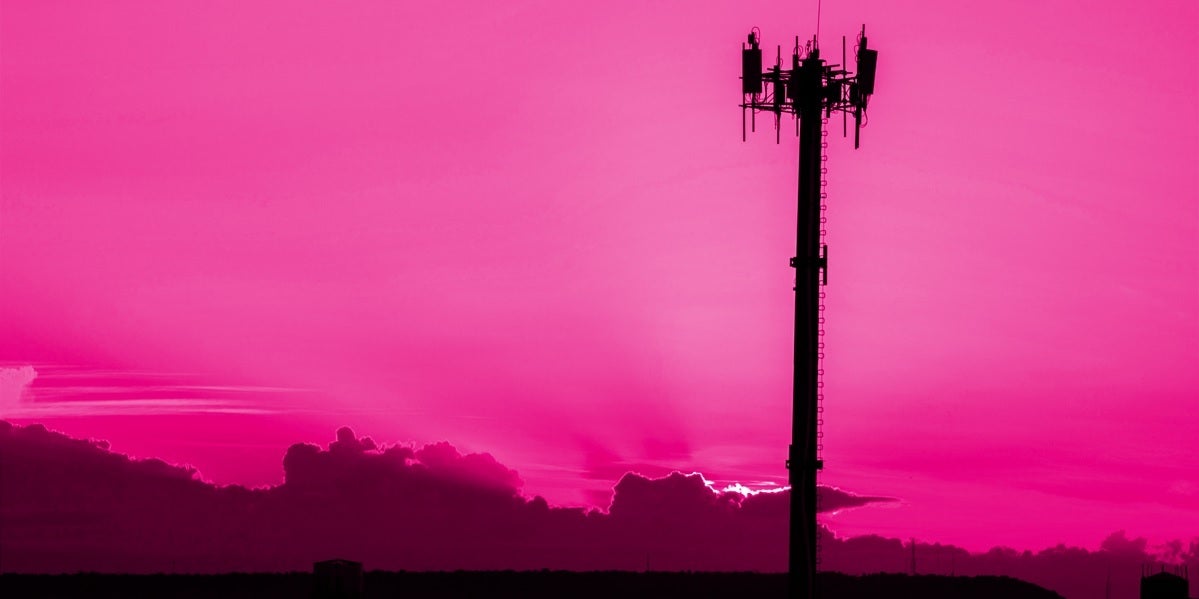Analysts see T-Mobile as the 5G speed leader in the U.S. after the merger closes

Last month, we passed along the results of Open Signal's real-world 5G speed test and T-Mobile's average download data speed was certainly not impressive at 47.5Mbps. Verizon, on the other hand, had the fastest average 5G download data speed at 722.9Mbps. This huge difference in data speeds reflects the different approaches that both carriers are using to build out their respective 5G networks.
For its nationwide 5G network, T-Mobile used the low-band 600MHz spectrum it paid $7.99 billion for back in 2017. These signals travel farther than high-band spectrum and penetrate structures better. Using its 600MHz airwaves, the carrier was able to finish its coast-to-coast network before any other U.S. carrier including Verizon.The latter is employing high-band mmWave spectrum for its 5G network and these airwaves have the advantage of delivering much faster download data speeds (as the Open Signal test results show), higher capacity and low latency.
Analysts believe that T-Mobile will eventually offer the fastest 5G speeds
While T-Mobile's 5G data speeds might not be impressive now, a report from Fierce Wireless says that with the mid-band 2.5GHz spectrum that it will receive from Sprint once the merger closes, it is T-Mobile that is in position to become the nation's 5G speed leader. The carrier already has some mmWave spectrum in seven markets that Open Signal tracked at an average download data speed of 243.1Mbps, second to Verizon. Sprint's mid-band signals scored an average download data speed of 183Mbps. Once the merger is completed and T-Mobile purchases more mmWave spectrum from an upcoming auction, the wireless provider will be able to field a 5G network combining the best attributes of low, mid and high-band signals.

T-Mobile could eventually be the 5G speed leader in the U.S.
Analysts at New Street Research have a more specific idea of what to expect from T-Mobile after the merger closes. The firm says that the carrier will start deploying 60MHz of 2.5GHz mid-band spectrum across it 70,000 cell sites. It also will use its 600 MHz, 700 MHz, PCS and AWS spectrum on 12,000 Sprint cell sites that it will keep in the merger. New Street's report says, "Deploying the 2.5 GHz with 5G will also materially increase the performance of the network, giving T-Mobile a strong lead over AT&T and Verizon and improving the value of their offer relative to competitors."
Today, noted telecom analyst Craig Moffett of MoffettNathanson said, "For Verizon and AT&T, the going is likely to get tougher when the deal closes. They will face not only a diminished pool of available subscribers as Sprint’s churn rate improves and as Cable’s marketing in wireless accelerates, but also a 5G network that is positioned to be better than what either AT&T or Verizon appears ready to offer."
Where T-Mobile has an advantage that the others don't is with Sprint's 2.5GHz mid-band spectrum. There is a shortage of such spectrum in the U.S. and the FCC plans on auctioning off mid-band spectrum in the 3.7GHz-4.2GHz range by the end of the year. Moffet says that 5G, as it stands right now, isn't worth the extra expense required to purchase a 5G phone. He bases this on the aforementioned Open Signal report. But he says that "New T-Mobile appears to be positioned as the first out of the gate with something better."
T-Mobile is really counting on its mid-band spectrum to differentiate itself from the competition. Despite the speed advantage that Verizon has now with its mmWave airwaves, analyst Daryl Schoolar of Omdia says that if there was enough mid-band spectrum to go around. all carriers in the U.S. would be using it. He says, "I believe if operators could in the U.S., they would all be doing mid-band first. Millimeter wave is the icing on the cake. It’s not what you really should be leading with. The only reason why you see it so much here is those operators don’t have any choice."
While Verizon has the lead in speed, if these analysts are right it is going to be T-Mobile offering the fastest 5G download data speeds at the end of the day.










Things that are NOT allowed: